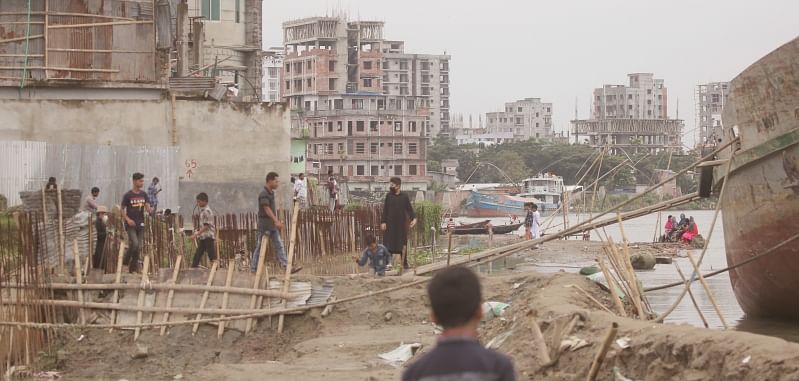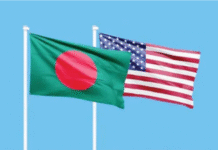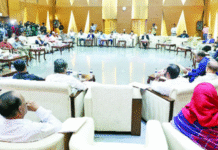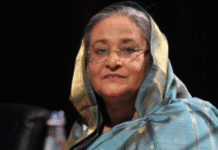
Bangladesh Inland Water Transport Authority (BIWTA) recently removed illegal structures set up by influential persons on land grabbed along the river Buriganga. However, it depends on the next steps of the government whether their move will be able to restore Buriganga to its original state. BIWTA had carried out several such drives in the past, but the influential encroachers remained undeterred, using loopholes in the law and their muscle to continue occupying the river.
Several structures of the Dhaka-7 member of parliament Haji Salim were removed in the drive carried out last Sunday and Monday by BIWTA. Illegal structures erected by other influential persons in Imamganj and Sowarighat were also removed. Buriganga’s original channel has been destroyed because of these unauthorised structures. BIWTA could not remove all illegal structures on the river due to certain court restraints.
Removing illegal structures from the river banks has become a cat and mouse game. On one hand BIWTA is carrying out eviction drives, and on the other hand the influential persons are simply erecting their structures all over again.
Removing illegal structures from the river banks has become a cat and mouse game. On one hand BIWTA is carrying out eviction drives, and on the other hand the influential persons are simply erecting their structures all over again. These influential persons include businessmen, politicians and even people’s representatives.
At least two members of parliament have been identified as river grabbers – Haji Salim and Aslamul Haque. Haji Salim’s land grabbing is not restricted to rivers alone. He has forcefully taken over many government and private plots of land and property within the capital city too. And the MP Aslamul Haque has been threatening the river commission after his river encroachment came to light.
According to the verdict of the Supreme Court, rivers are living entities. It is not the responsibility of BIWTA alone to protect these living entities. The cooperation of government and private agencies, of people from all walks of life, is required in this regard. Proper implementation of the law is essential.
Alongside encroachment, Buriganga also faces pollution. Waste has long been dumped into Buriganga, making the river’s waters unfit for use. The layers of polythene that now line the river bed are an impediment to dredging.
There are many more unauthorised structures. All these must be removed and it must be ensured that such structures are not erected again in the future. It is imperative to implement the 9-point directives issued by the High Court in May 2009 in order to halt the illegal encroachment of Dhaka’s four rivers and to remove the illegal structures.
Other than the eviction drive, BIWTA had also taken initiative to create walkways and gardens along the riverside. But none of their initiatives will be a success unless the encroachers are permanently halted.









